I'm on my laptop snacking on cold watermelon and generally, everything is pretty much the same as it always is. Except when I look down, there's a tiny baby attached to me via a second hand bamboo wrap, asleep after having a feed. He is my two day old son. It's blowing my mind but at the same time feels as utterly normal as the simple home life I'm used to.
Our little angel Archie Forest Kuhn was born on Thursday October 1st, after 39 weeks and 2 days gestation, weighing 2.64kg and besides being on the small side, he was healthy. Here's how his birth story unfolded, teaching Andreas and I so many lessons and giving us a hearty dose of spiritual growth!
......
By the end of September I was 39 weeks pregnant and I still couldn't really imagine what life with a newborn would be like. We hadn't yet prepared everything we needed and were still racking Gumtree for baby slings and a co-sleeper. It was Tuesday evening and we were picking up a second hand Moby wrap - a type of sling you can use to wear your baby on your body.
I had received a message from my friendly gang of spiritual guides that the baby would come on a Wednesday, but cheekily they (whoever "they" are) wouldn't tell me which Wednesday! I figured it would be at least a week away, that I'd go until my due date and probably over, even though at our baby shower I'd wishfully predicted his arrival date to be October 1st (I win the M&M's guys!)
At 10:30pm on Tuesday night I woke up with mild cramps not unlike period pain. They were only slightly stronger than the Braxton Hicks contractions I'd been experiencing for weeks so I thought I'd just have a couple, they'd subside, and I could go back to sleep. After ten or so contractions I realised they were lasting about 20 seconds and were three minutes apart, which was the most frequent they'd ever been. When I informed Andreas he immediately got amped as it was nearly Wednesday and unlike me, he takes all my kooky psychic predictions seriously!
He was up and fussing with hose fittings to attach to the birth pool as I stayed in bed and witnessed the waves come and go. I was excited but still didn't quite believe that this was really it! After two hours I could no longer deal with the discomfort in bed so I began some of the active birth moves I'd only read about. I hadn't practised any birth skills, having had a fairly lackadaisical, "I'll be right: I'll have a three hour labour and easy birth" attitude throughout the last months of my pregnancy. How wrong I was.
The Fool
I should mention now that if I were to be represented by a tarot card, I'd be the fool. Having an eternally optimistic attitude has helped me take risks in life and do things that scare me, buffered by an often blind naivety that lands me in challenging situations that I then just have to figure my way out of or through. It helps me get stuff done, and push myself big time as I often end up in sticky situations that force me to adapt quickly!
Usually my fool nature results in taking risks that work out really well, taking most opportunities presented to me, and occasionally flopping. It makes me "lucky". However when it came to applying the fool attitude to the birth of my first child, it made me perhaps a bit too optimistic and less realistic about the possibilities of a difficult, long labour, and blasé about the possibility of having to transfer to hospital from our planned homebirth. But we'll get to that...
First stage labour
Andreas called the midwife at 12:30am on Wednesday and since I could still talk through the contractions, we decided to just keep doing what we were doing. I was walking, high stepping, vocalising (sorry neighbours) and using mantra to stay bigger than the pain. I felt strong, excited, and capable. Foolishly, since it all seemed to be happening on a Wednesday we thought the birth would go fairly quickly and we'd have our baby that morning. Such unrealistic optimism and an illusion of control we'd spun!
By 6am the contractions started becoming further apart, and by midday they were only coming every eight to ten minutes. They were painful enough that I couldn't sleep between them, and I was still having to get on all fours, yell, and punch things to distract myself from the pain (again, neighbours, sorry). I still have knuckle scabs from all the couch, wall and floor punching I did throughout labour!
At dusk things started getting more intense and frequent, but by 9:30pm Wednesday night they were dying down again. I hadn't slept in nearly 24 hours and was over it, so decided to brush my teeth and go to bed. Andreas had been a wonderful support since it began, applying pressure to my lower back throughout each contraction and giving me heaps of encouragement, so he was tired too. Sleep would have been really nice.
Of course my body and baby had other plans. We live in a small (by modern standards) wooden duplex and our neighbours are definitely within earshot. As I moaned miserably in bed I whinged about the neighbours not-really-that-loudly having beers on the balcony - ironic after I'd been moaning, shouting, stomping, and punching things all night and day, probably keeping them awake!
At 11pm my contractions started getting much stronger and I could definitely not talk or think through any of them. With a pop my waters broke, quite undramatically I might add. Unlike in the movies where the heavily pregnant woman is out shopping and her waters explode all over some poor sod, I had just a trickle. Then I had a show of bloody mucus which meant my cervix was starting to open up. This was the confirmation our amazing midwife, Maria wanted to hear over the phone. She arrived at 1:20am and checked the baby's heart rate and my vital signs. She was wonderfully encouraging, and happy to let me keep "doing my thing" while she sat in the background, observed and occasionally checked baby and I were doing fine. A note to anyone looking for a private midwife: the less they do to you in labour and the quieter they are, the more experienced they tend to be.
I was in and out of a hot shower, another birth skill that helps massively. Unfortunately our little shack is not well insulated and it was a cold night, despite our two heaters being on at full bore. Getting in and out of the shower made my temperature drop and at times my teeth were chattering so hard it was difficult to speak.
Around 4am (not sure of exact times - my perception started getting blurry at this point as I'd been awake for so long) Maria checked my cervical dilation for the first time and I was at 8 centimetres, which was encouraging. I thought, "sweet, labour will be over soon and I'll push this baby out by 6am." I was really looking forward to getting in the birth pool and pushing him out - it felt like it would be a relief after labour!
I didn't want to have heaps of cervical exams as doing so can slow labour down, so 8 centimetres at my first check was encouraging. You need to be 10 centimetres to start pushing the baby out so again, my cock-eyed optimism kicked in when actually, a mind open to all possibilities would have been a much better mental background.
Second stage labour
By 8am I had passed transition and was at the pushing stage but baby was taking a very long time to navigate through my pelvis and come down. Earlier, Maria had inserted a urinary catheter as my bladder was blocked which may have been stopping baby from coming down. Can I just say that getting a catheter put in sucks, but not being able to pee while you're in the worst pain of your life for hours and downing water like an elephant, is possibly worse because worrying that your bladder might explode is just one. More. Thing. To. Deal. With.
In and out of the birth pool I squatted, hip circled, and pushed my guts out with each contraction. I still felt strong after being awake for 30 hours and was doing exactly as my midwife instructed me. And man, was she working me hard! She encouraged me to do heaps of squats, leg lifts and hanging off of things. I really think that building strength and pelvic floor tone with Pilates and hiking throughout my pregnancy helped a lot.
But even with good physical training, you can only go so far. After two more hours of pushing my guts out (as if you're trying to do a big poo) every three minutes, baby's head had still not progressed much. I started to wonder how much longer this would all take as I was getting tired.
We wondered if his head was still in a wonky position, which it had been at my last checkup. Maria had palpated that baby had his hand under his chin which was extending his head up and back instead of having chin to chest. This is not the ideal position for a baby's head to navigate the pelvis easily but we'd all hoped he would move, and I'd been doing awkward one legged lunges for some time to try to get him to move that bloody hand, seemingly to no avail!
By 10am we'd tried a bunch of positions with very little progress, although we could just see baby's head! I was channelling all of my energy into bearing down on each contraction, and had very little energy left to speak or eat. I'd been eating easily digestible things throughout labour to keep up my strength, but now couldn't be bothered to have one more spoon of honey or bite of watermelon.
Labour is a weird headspace where the only place you can be is in the present; past and future are not only irrelevant, but distracting. I could hardly consciously recall that I was having a baby in the immediate future! Being in this zone helped me to focus on Maria's instructions, and not worry about what was coming next. But Andreas' mental faculties were intact and later confessed that he was getting worried by this stage. When Maria mentioned hospital transfer was an option, I decided then and there that it was what was going to happen.
Another half hour of pushing my guts out later and I was done. Not fully spent, but not far off it. And I'd need energy to push the baby out. We grabbed my half-packed hospital bag (only half-packed because despite always saying I'd be willing to transfer if necessary, I truly, naively expected to have a perfect home birth!) and made our way to the hospital in a convoy. I felt a mixture of disappointment and relief, but no longer cared as much about the perfect home birth. Rather, I just wanted to meet my baby and have the whole bloody thing over with.
Hospital transfer
On the way in her car, Maria briefed me on the options the hospital staff would throw at me. Ideally, I would get a ventouse (vacuum) to help me push the baby out as I was having a contraction... and NO other interventions. I really wanted a vacuum over forceps as it is less likely to cause vaginal tearing than forceps and doesn't necessitate anaesthesia, unlike forceps use. But I had to be prepared to hear the spiel from the medical staff about getting forceps (didn't want), an episiotomy (didn't want), drugs (didn't want), and a caesarean section (holy shit did I NOT want that).
I was still having contractions on my hands and knees in the back seat of the car, which quite frankly was fucked. It was definitely worse in a car where I couldn't use active birth moves, and I was exhausted. However my contractions were now spaced further apart, just two every ten minutes (four is ideal). Maria told me I still had to push with all my might throughout every contraction, and "not give the doctor and excuse to give you a C-section." I pushed but not at 100% as I was truly starting to lose heart.
We pulled up in the packed hospital carpark and Maria made me walk 10 minutes to the birth suite, which sounds mean but she was just trying again to get baby jiggled into a better position. We went straight to an examination room where a junior registrar came in and inserted a urinary catheter as my bladder was blocked again. That time it hurt more than when Maria had done it at home. Baby got an internal needle electrode attached to his head to better keep track of his heart rate (didn't want, it hurts the baby) and I got a cannula inserted into my arm and an IV drip.
Now during my contractions I was still pushing hard, but baby's heart rate was going down and not recovering quickly, unlike at home. He was getting tired and whenever there are any signs of foetal distress, the shit hits the fan and the big guns come out.
The first doctor who examined me said I'd probably need to go to theatre for a delivery involving forceps, episiotomy, and local anaesthetic or epidural... if not a caesarean section. She was a junior registrar and eventually her superior came in and made the call that vacuum and no drugs was enough. But you can imagine the shock and horror Andreas and I felt in hearing this!
Why I didn't want drugs
Of course, the registrar was just doing her job... plus she lacked the years of experience (and tact!) of her consultant/boss. Forceps and drugs, or a C-section were all promptly offered "in the baby's best interests". This explanation is extraordinarily emotive for any mother to hear, and there are valid reasons a labouring mother might need all of these - and many other - medical interventions. Modern medicine certainly has its place and saves many lives. But in the heat of the moment the advice was given devoid of any discussion of the known risks of these interventions for mother-baby bonding and breastfeeding success afterward.
Many mums have no qualms about having drugs and other obstetric interventions as part of their birth experience, and there's absolutely nothing wrong with that. There is no one right decision and each mum has to go with what feels best for her.
For me, I planned a home birth partly to avoid the interventions that are routinely offered in hospital. Personally, I didn't want to be "out of it" once my baby arrived and I didn't want my baby to be drugged either - both things that usually occur with pain relieving drugs as they can stuff up the perfectly balanced cocktail of natural hormones your body produces around birth for bonding.
Gas (nitrous oxide), pethidine and epidural anaesthesia all cross the placenta and enter the baby's bloodstream. Whilst these drugs all reduce pain and pain perception to varying extents, they also reduce your natural adrenaline and epinephrine levels, which help you and baby stay alert for a few hours after birth to bond properly and initiate breastfeeding. Even after being awake and exerting massive amounts of energy during endless hours in labour, I felt like I was on speed after giving birth! The alertness lasted for nearly 12 hours and I didn't feel like sleeping until very late that night.
Pain-relieving drugs can also alter your body's production of oxytocin, the hormone of love and bonding. When a woman gives birth naturally she experiences the biggest oxytocin high of her life so that she has the best chances of falling ridiculously in love with her baby.
The effects of the disrupted mother-baby bonding brought about by drugs routinely used in labour and birth can last for hours, weeks, months or years. These factors are rarely discussed in a conventional medical setting.
Of course, sometimes these drugs are not only necessary but lifesaving. Thank goodness they exist. I just wanted to avoid them if at all possible.
Surrender
Back to the registrar, who was listing all the options I didn't want. She told us forceps were likely to be used over a vacuum and if that didn't work, I might be going to theatre for a C-section. Having not quite prepared myself mentally for this scenario, it was scary as hell and it was all happening so fast. How had we gone from a sweet, natural home birth in a forest shack using clary sage essential oil to gently augment contractions, to the other end of the spectrum, being surrounded by cold, bright lights, strangers inspecting my vagina constantly whilst my legs were up in stirrups, and the distinctly frantic energy of an "emergency" medical situation?
Andreas hadn't received Maria's preparatory talk in the car since he had driven separately. On hearing the registrar his expression changed visibly and he later told me he nearly cried then, especially when she told us an emergency C-section was a very real possibility. It was the first time I looked at him and didn't feel reassured.
We both felt incredibly helpless and overwhelmed. Maria was advocating for us like a champion, and had promised she would do everything within her power to prevent a C-section. As we waited for the consultant to come and make the final call, I felt like we were in a movie, our worst nightmare was rapidly unfolding and there was absolutely nothing we could do. I finally surrendered my overly positive outlook and just went with it: the terror, the interventions, whatever I had to do. I just wanted my baby to be healthy and if I needed a C-section, then that was that.
The consultant arrived and was an angel from the start. Obviously highly experienced, she acknowledged that she knew this was not what we wanted (we were hippies planning a home birth, for fuck's sake!) but again, that these undesirable options were possibilities because baby was at risk.
She examined me (I was getting used to strangers sticking things in my vagina by this stage; your dignity is pretty much irrelevant in this setting) and I braced myself for the worst news possible: that I would need ALL the drugs and a caesarean.
A turn for the better
Miraculously, the consultant confirmed what Maria had already assured me: I had nearly pushed the baby out. After 33 hours in labour, a fuck tonne of work and pushing, I had nearly gotten this baby out but he was stuck for whatever reason. She could feel baby's head and confirmed that she, too was worried that his heart rate was staying too low after contractions. So she decided that instead of wasting time prepping for surgery and risking baby becoming even more compromised, we would stay in this room and try the vacuum as there was no time to spare: this baby had to come out NOW! Christ was I glad to hear that. But I had a job to do. The vacuum only works while your uterus is contracting and ideally, you're using that contraction to push your guts out.
I looked at Andreas' face and the light of hope had switched back on. "Come on babe, on the next contraction you need to push!" he implored. Maria told me that to avoid surgery, I had to make this push the biggest one I'd ever done in my life. Just before the doctors were going to administer some syntocin to ramp up my contractions artificially, one naturally came and I pushed like all hell. (In my fight or flight overwhelm I actually thought they did give me syntocin to push baby out, but later found out they hadn't had time, meaning I had done the entire birth up to this point drug free - I'll take that!)
I felt him come down, and the infamous ring of fire as everything stretched but the pain didn't matter, I wanted him the hell OUT! In my humble opinion, the pain of pushing a baby out was so temporary, it's a walk in the park compared to dealing with labour. His head came out, then with another push his shoulders and body slithered out. It all happened in a blur and I had so much adrenaline coursing through me I could only be in the moment.
Unfortunately, because he was pale and floppy when he came out, his cord had to be cut immediately. Apparently the doctors briefly held him up for me to see (I don't remember that bit) then quickly transferred him to the resuscitation table two meters away. That means he missed out on about 30% of his blood since delaying cord clamping even for one minute allows more nutrients and oxygen to be transferred from the placenta to the baby. Again, not what I wanted but it had to be done, and I'll do my best to make it up to him with lots of nutritious breastmilk :)
The medical staff quickly suctioned a bit of amniotic fluid from his mouth and nostrils and gave him some oxygen, and he responded with a cry. I could hear Andreas singing a song to our baby that he had sung to him whilst in the womb. He soon brought him over to me and it was only then that I remembered I had just had a baby! I held him in my arms feeling a seismic wave of awe, confusion and sheer relief.
The medical team left as quickly as they'd arrived and our new family were left alone to bond.
The placenta
There is a third stage to labour after all of this: birthing the placenta. Because I had been in labour for so long and had required a vacuum, I was officially at risk of uterine haemorrhage. So they administered syntocin to stimulate my uterus to push the placenta out. This was the first and only pharmaceutical I received through the whole ordeal and luckily, it doesn't impact on bonding. Maria then spent twenty minutes gently trying to pull my placenta out but I was too busy falling in love with my baby to care.
Just when I thought the worst was over, the registrar popped her head back around the corner and warned me that if the placenta didn't come out within the next four minutes, I'd have to be admitted to theatre after all to get it removed. Which meant more needles (local anaesthetic) this time directly into my vagina (yay), then someone literally scooping it out with their hand! You can imagine how badly I wanted to avoid that so again, I visualised what I wanted and the placenta was out in a flash.
**WARNING: Potentially disturbing details about placenta-eating ahead.** Like any hippy worth her patchouli I had considered eating my placenta after giving birth. I won't go into the reasons in detail here (you can find those details in this blog!) but the main reasons some mums do it are to help regulate hormones and stabilise emotions after birth, and attempt to restore levels of iron and other minerals lost through blood loss.
Initially, I was pretty grossed out about the idea of eating my own placenta, which is routinely thrown out after a hospital birth. But as pregnancy wore on I started considering it.
As I detailed in my second trimester blog, I was diagnosed with perinatal depression midway through my pregnancy which puts me at greater risk of developing postpartum depression. Since eating your own placenta (certainly not another person's) has been reported to help women reduce this risk, I eventually changed my mind towards the end of my pregnancy and decided to somehow eat it, even though it still felt gross. There is no solid evidence it actually helps but after talking to some women who had tried it and doing some Googling, I figured it was worth a go anyway!
After the birth, Maria gave Andreas a guided tour of my placenta before asking me if I'd decided if I wanted to eat any. By that stage, nothing scared me anymore so without thinking I said, "yes". Being the dead set legend she is, Maria carefully sliced a few tiny bits off for me to pop between my gums and cheek. I ate three bits over the next hour, allowing them to sit there in my mouth before swallowing them. I just thought, "sashimi". It really tasted fine, just a bit iron-y.
As a final side note, my partner is also a legend because as I type this, he is dehydrating the rest of my placenta so he can encapsulate it for me. I mean really, how many blokes would do that?! He also made me a placenta smoothie for breakfast on the second day after birth, making sure he added lots of frozen berries and just a tiny bit of frozen placenta. It just tasted like a delicious smoothie! I've also prepared a placenta acai bowl that was just as good. **Icky weird placentophagia business over and out.**
Aftermath
Over the next few hours following the birth, Maria inspected me for damage, of which there was a sizeable amount due to the volume of pushing I'd done, the speed of all the examinations that unfolded once I was admitted, and the vacuum: three tears all up but at least I didn't get an episiotomy which takes longer and is more painful to heal.
**WARNING: If you don't like gory details, please skip this paragraph!** Giving birth makes MMA cage fighting look like a stoned koala sleeping contest. I've done Muay Thai training in Thailand so I can attest to the contrast! Besides the intensity of labour, the damage to your nether regions can be considerable. After giving birth my vulva was about four times its normal size from all the pushing, prodding, and tearing. My anus looked like a doughnut and I now have one large haemorrhoid that will take some time to go away, and it might not entirely. I was fortunate that there wasn't a lot of bleeding, possibly due to the raspberry leaf extract I was chugging throughout my second and third trimesters. Things could have been so much worse, but whenever a vacuum or forceps are used the damage is usually worse than in a completely natural birth. Bugger.
Maria gave me the lowdown on breastfeeding and it didn't take long for baby to find a nipple and start suckling. The paediatrician checked baby and found him to be healthy and responsive.
Despite this, she strongly recommended we let them keep our baby overnight to monitor his blood sugar levels (more needles for baby, didn't want) as he was little: 2.64kg, 10 grams under the minimum weight they would have been happy with. With Maria's approval we decided not to do that as we really just wanted to get home as soon as possible and recover. Plus breastfeeding was going well so there was a good chance I could keep him fed and normoglycaemic at home.
Archie Forest Kuhn was born at the Gold Coast University Hospital at 12:26pm on Thursday October 1st, and we left around 7pm after a bunch of paperwork, a shower and some food. Driving home with a tiny new child after that crazy ride was surreal. I was still on an adrenaline high and didn't go to sleep until midnight, meaning I'd been up for more than two days straight!
After thoughts
I'm still processing how I feel about not having the home birth I had hoped for generally, and not pushing Archie out on my own, specifically. Being the perfectionist I am, I realise I need to let go of any guilt and disappointment that things didn't go the way I had imagined. And be grateful that medical intervention is there when we need it. It just would have been nice to know I could push him out by myself, you know? But I believe everything happens for a reason. That I escaped needing the more hard core interventions and drugs is testament to my "crew" looking out for us!
Archie's head was probably positioned awkwardly and had I somehow forced him out, perhaps I would have damaged his head or neck. Maria said I could have kept pushing for a few more hours but we both would have been over-exhausted by the time he was born... if he was born.
The name "Archie" was not at the top of our shortlist - although his middle name "Forest" was at the top of mine! When Andreas first brought him over to me he said, "He looks like an Archie". And I agreed, he did. It just felt right. My Grandad's name was Archibald and he had bright red hair as a young man. Our baby looked like he had red hair on first inspection, although it may have been blood mixed with hair and now I think it's more a light brown with a reddish tint. Archie was also the nickname of some famous surfer Andreas knew, and Andreas is big on surfer names!
Archie, we love you more than we ever thought was possible. Thank you for coming into this world, and into our lives in such a big way. Thank you for teaching me humility, and surrender. I promise to protect, nurture, and love you forever.
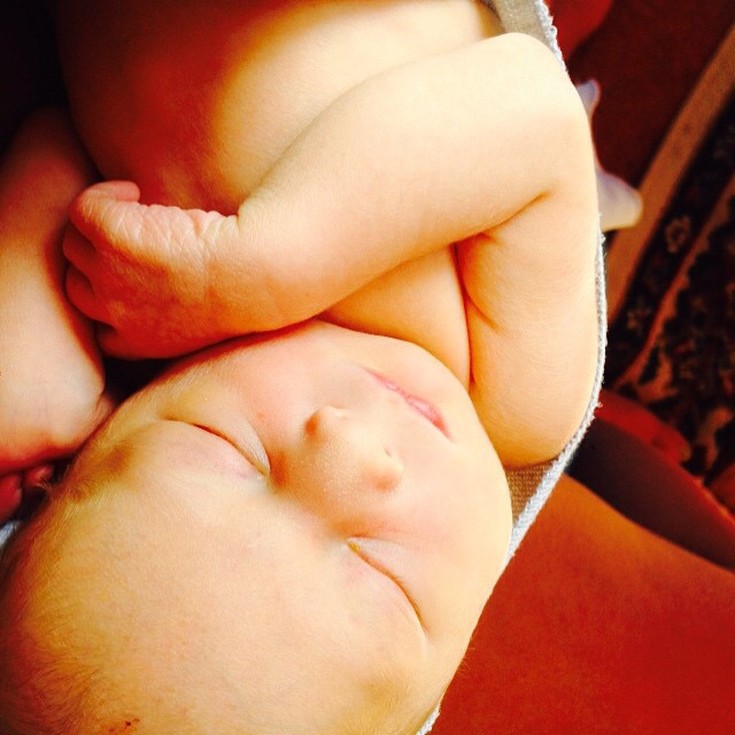
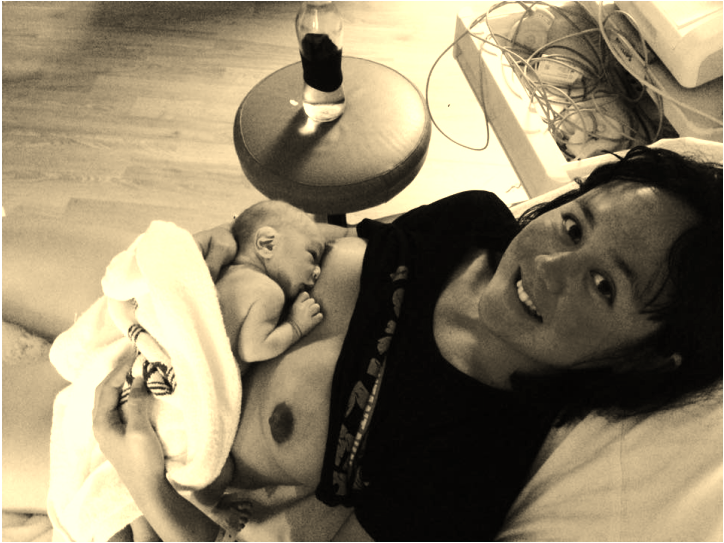
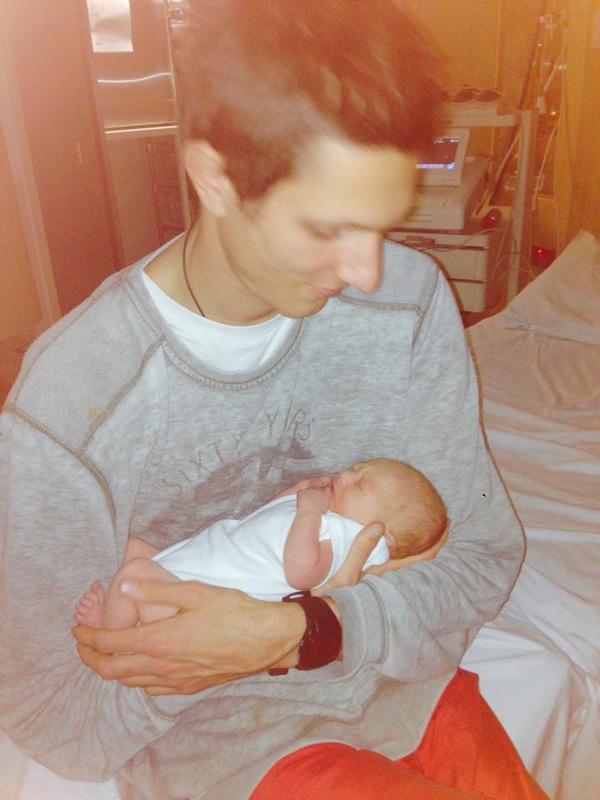
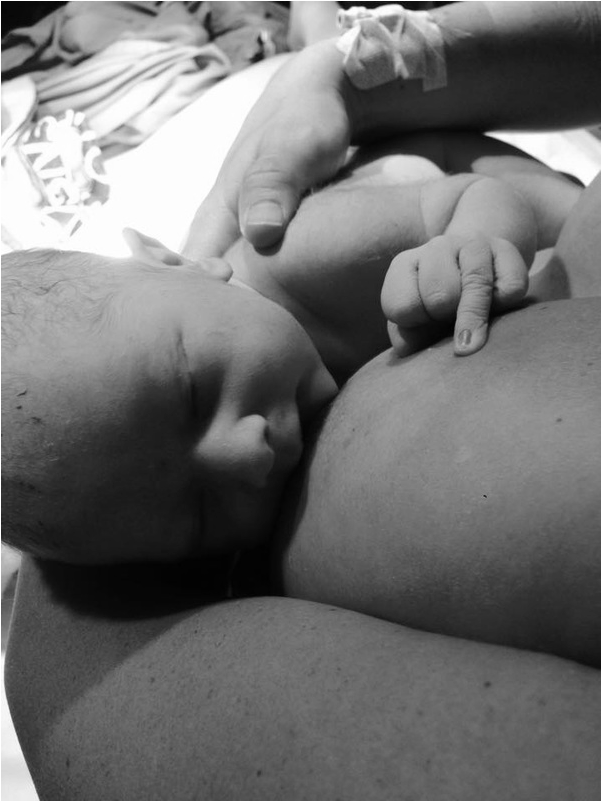
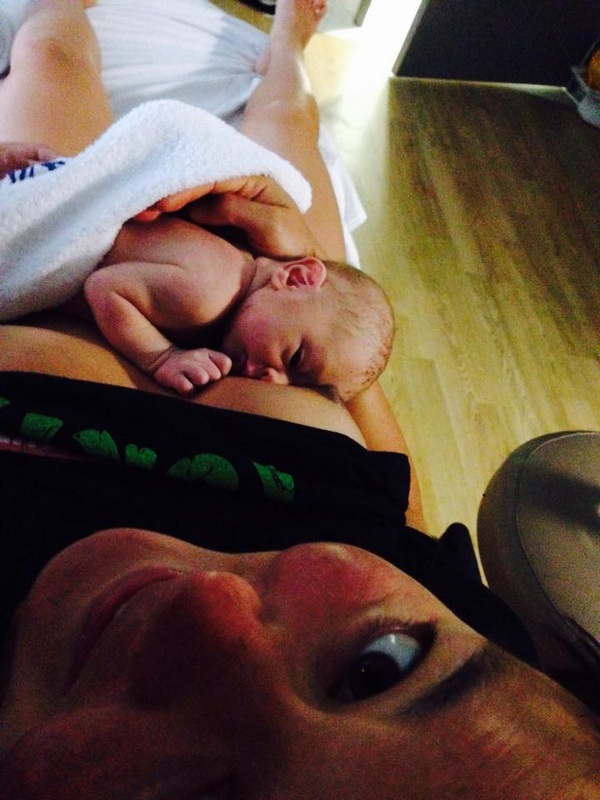
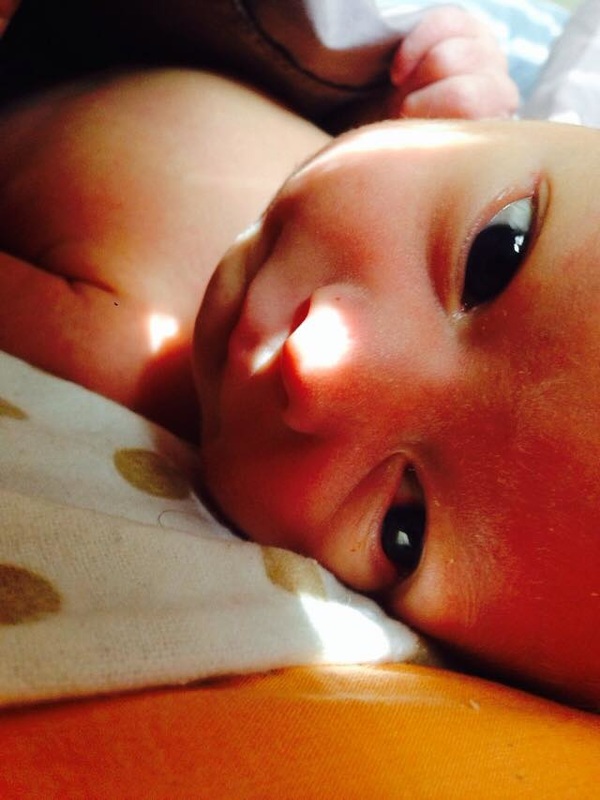
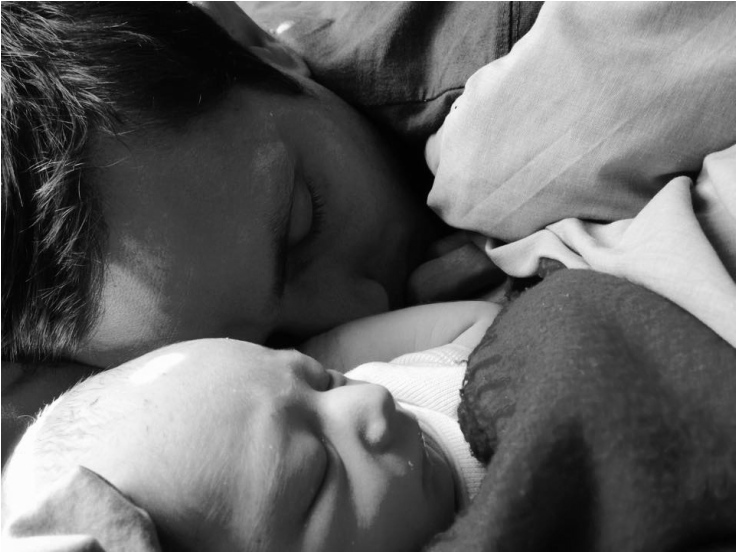
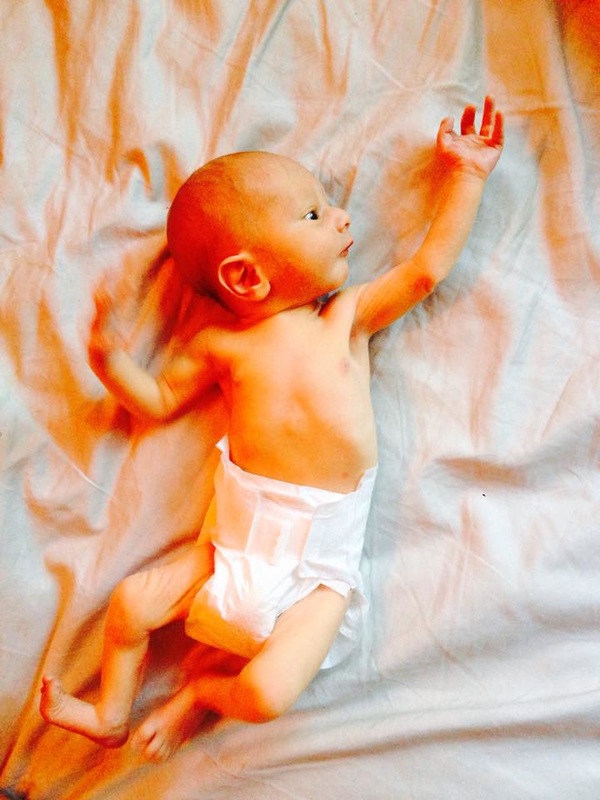
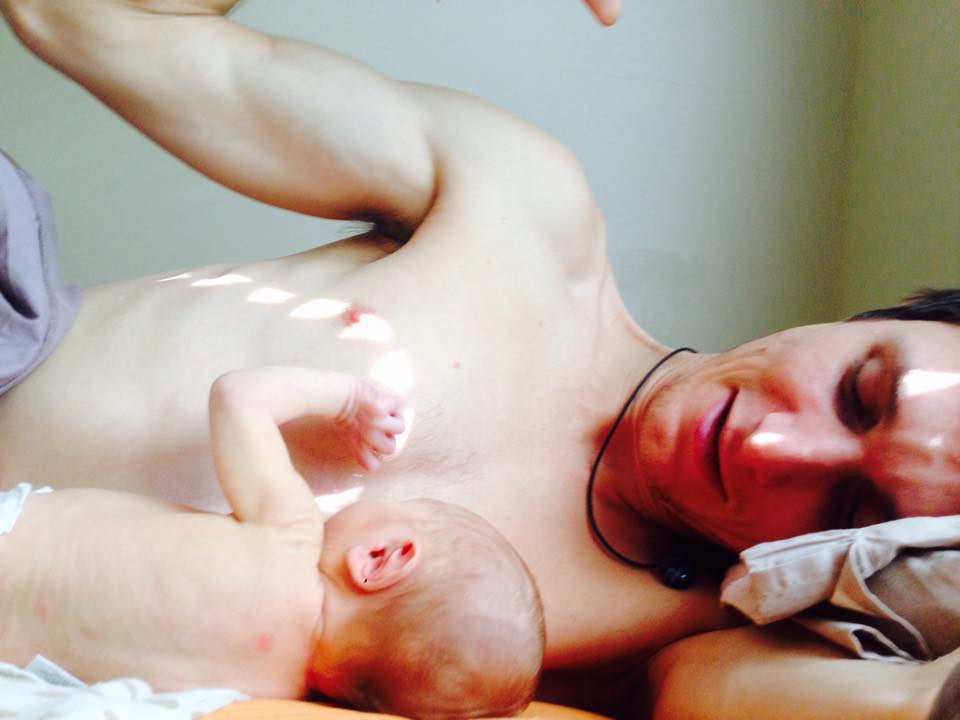
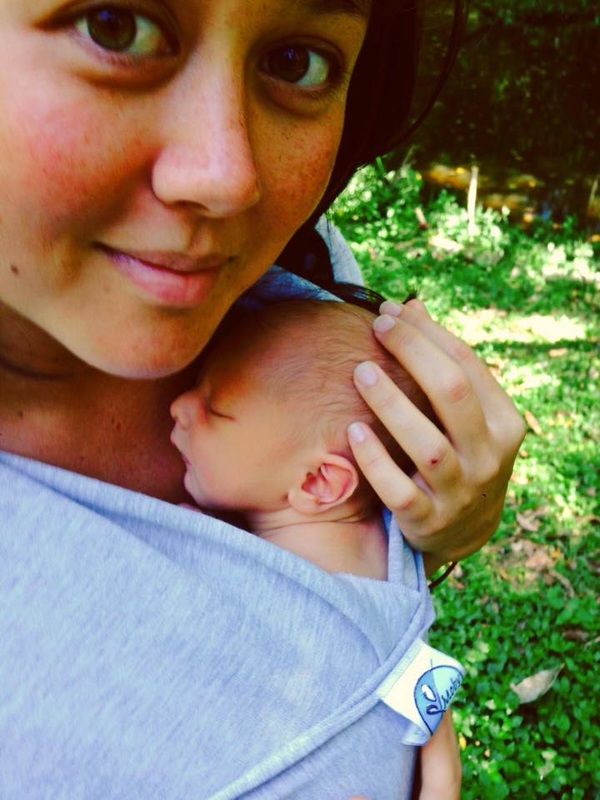
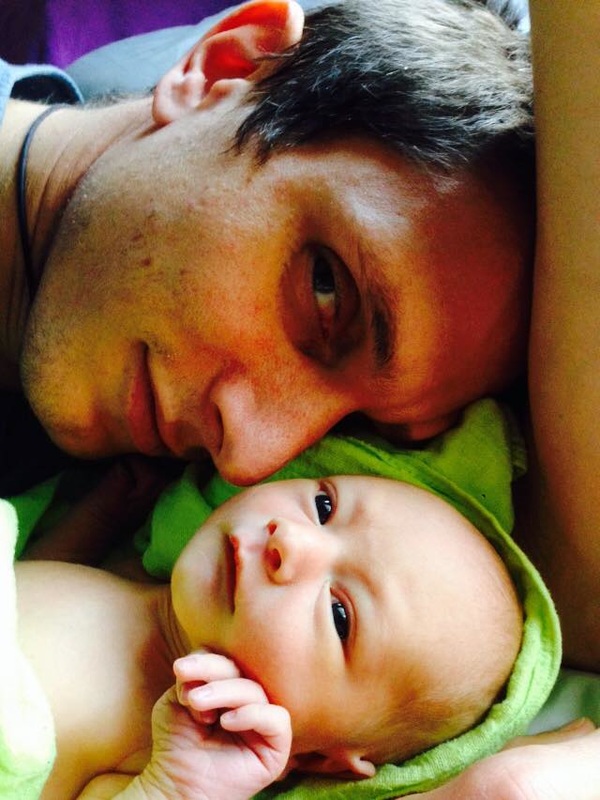

































 RSS Feed
RSS Feed



